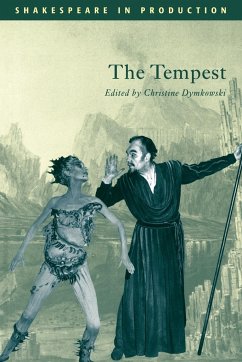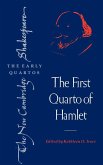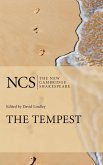This edition of The Tempest is the first dedicated to its stage history. Drawing on a wide variety of sources, it examines four centuries of mainstream, regional, and fringe productions in Britain (including Dryden and Davenant's Restoration adaptation), nineteenth- and twentieth-century American stagings, and recent Australian, Canadian, French, Italian, and Japanese productions. In a substantial, illustrated Introduction Dymkowski analyses the cultural significance of changes in the play's theatrical representation, for example, when and why Caliban began to be represented by a black actor, and Ariel became a man's role rather than a woman's. The commentary annotates each line of the play with details about acting, setting, textual alteration and cuts, and contemporary reception. With extensive quotation from contemporary commentators and detail from unpublished promptbooks, the edition offers both an accessible account of the play's changing meanings and a valuable resource for further research.
Table of contents:
List of productions; Introduction; List of characters; The Tempest: text and commentary; Appendix 1: textual variations; Appendix 2: list of principal players; Bibliography.
This edition of The Tempest is the first dedicated to its stage history. Dymkowski examines four centuries of mainstream, regional, and fringe productions in Britain, nineteenth- and twentieth-century American stagings, and recent Australian, Canadian, French, Italian, and Japanese productions, analysing the cultural significance of changes in theatrical representation.
This edition of The Tempest is the first dedicated to its stage history.
Hinweis: Dieser Artikel kann nur an eine deutsche Lieferadresse ausgeliefert werden.
Table of contents:
List of productions; Introduction; List of characters; The Tempest: text and commentary; Appendix 1: textual variations; Appendix 2: list of principal players; Bibliography.
This edition of The Tempest is the first dedicated to its stage history. Dymkowski examines four centuries of mainstream, regional, and fringe productions in Britain, nineteenth- and twentieth-century American stagings, and recent Australian, Canadian, French, Italian, and Japanese productions, analysing the cultural significance of changes in theatrical representation.
This edition of The Tempest is the first dedicated to its stage history.
Hinweis: Dieser Artikel kann nur an eine deutsche Lieferadresse ausgeliefert werden.










